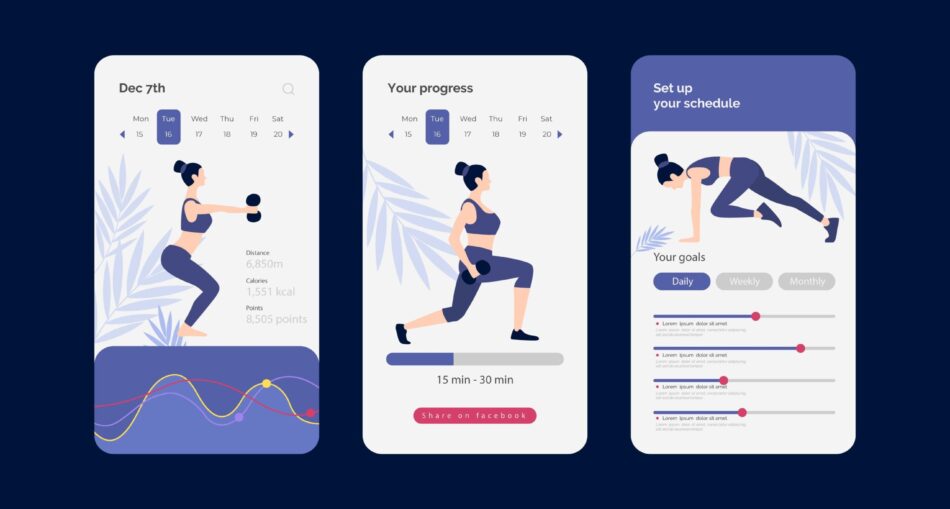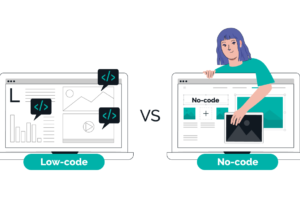In today’s digital era, fitness apps have gained immense popularity among health-conscious individuals. These apps not only provide personalized workout routines and track fitness progress but also offer various features like diet plans, calorie counters, and social sharing. However, with the increasing usage of fitness apps, it becomes crucial to address the security and privacy concerns associated with their development. This article aims to shed light on the key considerations that fitness app developers and companies need to take into account to ensure the safety of user data and protect their privacy.
Importance of Fitness Apps
Before delving into the security aspects, it’s important to understand why fitness apps have become an integral part of people’s lives. Fitness apps empower users to take charge of their health and well-being by providing personalized workout plans, monitoring progress, and offering valuable insights. These apps encourage individuals to adopt a healthy lifestyle, track their fitness goals, and stay motivated. However, with the sensitive data that fitness apps collect, it is crucial to address the potential security risks.
Security Risks in Fitness App Development
Fitness app development involves handling sensitive user data such as personal information, health records, and even location data. This makes fitness apps an attractive target for cybercriminals. Some of the common security risks associated with fitness app development include:
- Unauthorized access to user data
- Data breaches and leaks
- Insecure data storage and transmission
- Malware and hacking attacks
- User authentication vulnerabilities
To mitigate these risks, fitness app developers need to implement robust security measures right from the development stage.
Secure Data Storage and Encryption
One of the fundamental aspects of ensuring security in fitness app development is secure data storage and encryption. User data should be stored in encrypted databases, making it difficult for unauthorized access. Encryption algorithms like AES (Advanced Encryption Standard) can be used to protect sensitive data.
User Authentication and Authorization
Implementing strong user authentication and authorization mechanisms is crucial to prevent unauthorized access to user accounts. Fitness apps should enforce password complexity rules, incorporate two-factor authentication, and regularly prompt users to update their passwords.
Secure Communication Channels
Fitness apps often require users to transmit data over the internet, such as syncing fitness data to the cloud or sharing progress on social media. To ensure the privacy and integrity of this data, secure communication channels such as HTTPS should be used. This protects the data from interception and tampering.
Data Privacy and Consent
Fitness app developers must prioritize user privacy by implementing strict data privacy policies and obtaining user consent for data collection and usage. Users should have clear visibility and control over what data is being collected and how it is being used.
Compliance with Privacy Regulations
Adhering to privacy regulations like the General Data Protection Regulation (GDPR) is essential for fitness app developers. This ensures that user data is handled lawfully and transparently, and users have the right to access, rectify, and delete their data.
Regular Security Audits and Updates
Fitness app developers should conduct regular security audits to identify vulnerabilities and address them promptly. This includes staying updated with the latest security patches and implementing necessary updates to protect against emerging threats.
Handling User-generated Content
Fitness apps often have features that allow users to share their progress, and achievements, or even create workout routines. Developers must implement measures to verify and moderate user-generated content to prevent malicious or inappropriate content from being shared.
Minimizing Data Collection
To minimize the security risks associated with data breaches, fitness app developers should adopt a minimalistic approach to data collection. Only collect the necessary data required to provide the app’s core functionalities and ensure that user consent is obtained for each data point.
Secure Payment Integration
If your fitness app offers paid subscriptions or in-app purchases, it is crucial to integrate secure payment gateways. This ensures that users’ financial information remains protected during transactions.
User Privacy Settings
Fitness apps should provide users with granular privacy settings that allow them to customize the level of data sharing and privacy they are comfortable with. This empowers users to have control over their data.
User Education and Awareness
Educating users about the importance of privacy and security in fitness apps is vital. Developers should provide clear and concise privacy policies, terms of service, and FAQs to help users understand how their data is being handled and protected.
Choosing a Reliable Fitness App Development Company
When it comes to fitness app development, choosing a reliable and experienced fitness app development company is crucial. Look for a company with a proven track record in developing secure and privacy-focused apps. Consider factors such as their expertise, client testimonials, and their approach to security and privacy.
Conclusion
As the usage of fitness apps continues to rise, ensuring the security and privacy of user data becomes paramount. By implementing robust security measures, adhering to privacy regulations, and educating users, fitness app developers can create a safe and trustworthy environment for their users. Prioritizing security and privacy from the outset will not only protect user data but also enhance the reputation and credibility of fitness app development companies.







